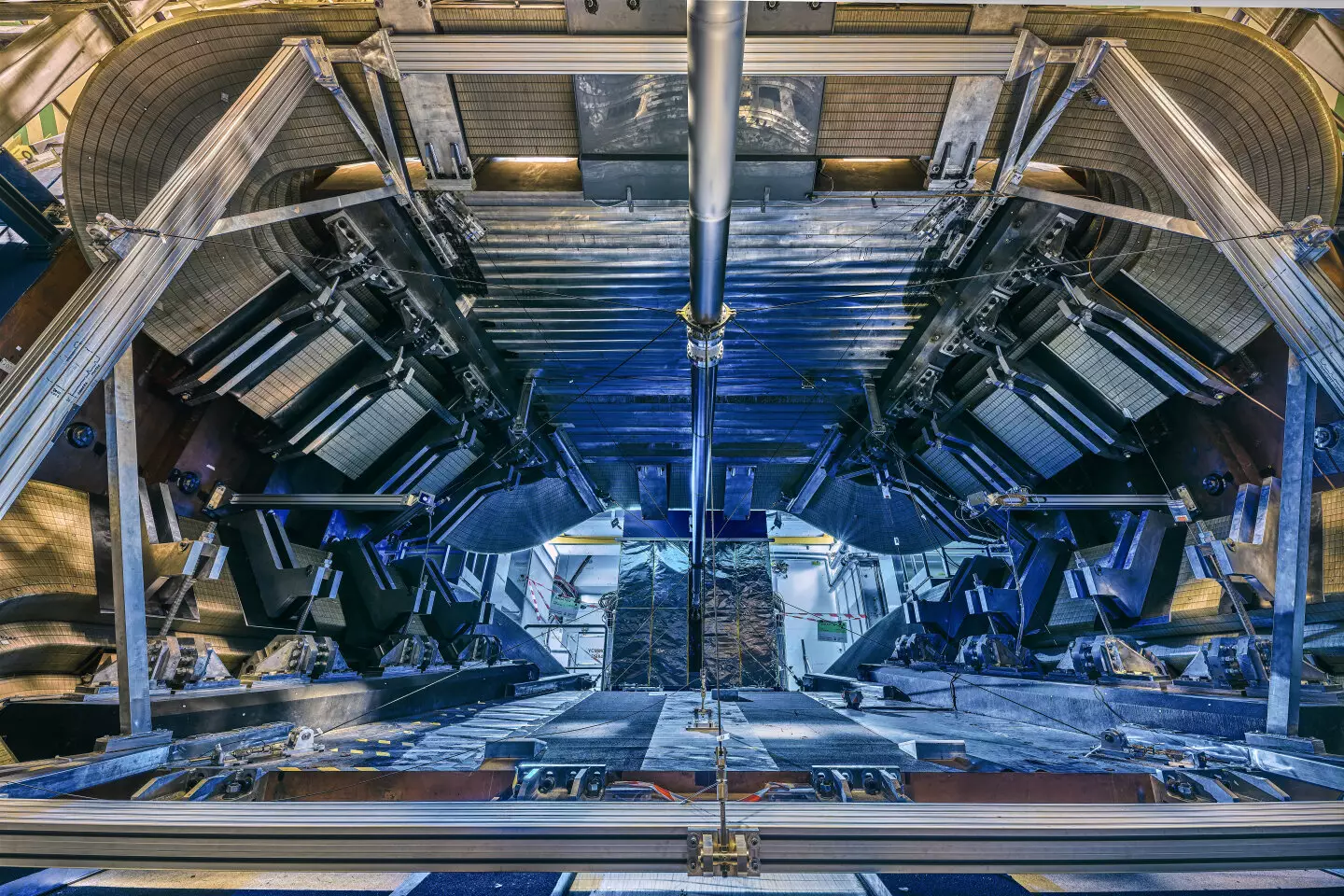The world of particle physics is a complex and enigmatic realm, filled with uncertainties and unanswered questions. Among the most puzzling phenomena within this field is the existence of matter-antimatter oscillation, where particles can spontaneously transform into their antiparticles and vice versa. Recent research by the LHCb collaboration at CERN has delved into the intricacies of this process, specifically focusing on the neutral D meson composed of a charm quark and an up antiquark. The implications of discovering matter-antimatter asymmetry in these oscillations could potentially illuminate the longstanding mystery surrounding the cosmic balance between matter and antimatter.
Within the framework of the Standard Model of particle physics, the weak force induces a phenomenon known as CP violation, which results in an inherent imbalance between matter and antimatter in certain quark-containing particles. Despite the existence of known sources of CP violation, such as those studied within the confines of the Standard Model, the observed matter-antimatter imbalance in the universe remains unexplained. This discrepancy has spurred physicists to explore new sources of CP violation and to conduct in-depth investigations into known mechanisms.
The research conducted by the LHCb collaboration represents a significant advancement in the quest to understand matter-antimatter oscillations. By meticulously analyzing the parameters that govern the neutral D meson’s oscillation between matter and antimatter, researchers have achieved unparalleled precision in their measurements. Through a comprehensive analysis of data sets from the Large Hadron Collider’s Run 2, the team has obtained measurements with an unprecedented level of accuracy, shedding light on the behavior of these fundamental particles.
The findings from the LHCb collaboration’s research underscore the importance of continued exploration into the mysteries of matter and antimatter. While the results have confirmed the existence of matter-antimatter oscillation in the neutral D meson, the absence of evidence for CP violation in these oscillations raises new questions and avenues for investigation. Future analyses using data from upcoming runs of the LHC, including the High-Luminosity LHC upgrade, hold the potential to unveil additional insights into the elusive nature of particle physics and the fundamental imbalance between matter and antimatter in the universe.
The pursuit of asymmetry between matter and antimatter in the realm of particle physics represents a crucial frontier in our understanding of the cosmos. By unraveling the enigmatic behavior of particles like the neutral D meson, researchers are paving the way for new discoveries and breakthroughs in the field of physics. As we continue to probe the mysteries of the universe, every avenue must be explored to uncover the secrets hidden within the intricate dance of matter and antimatter.


Leave a Reply